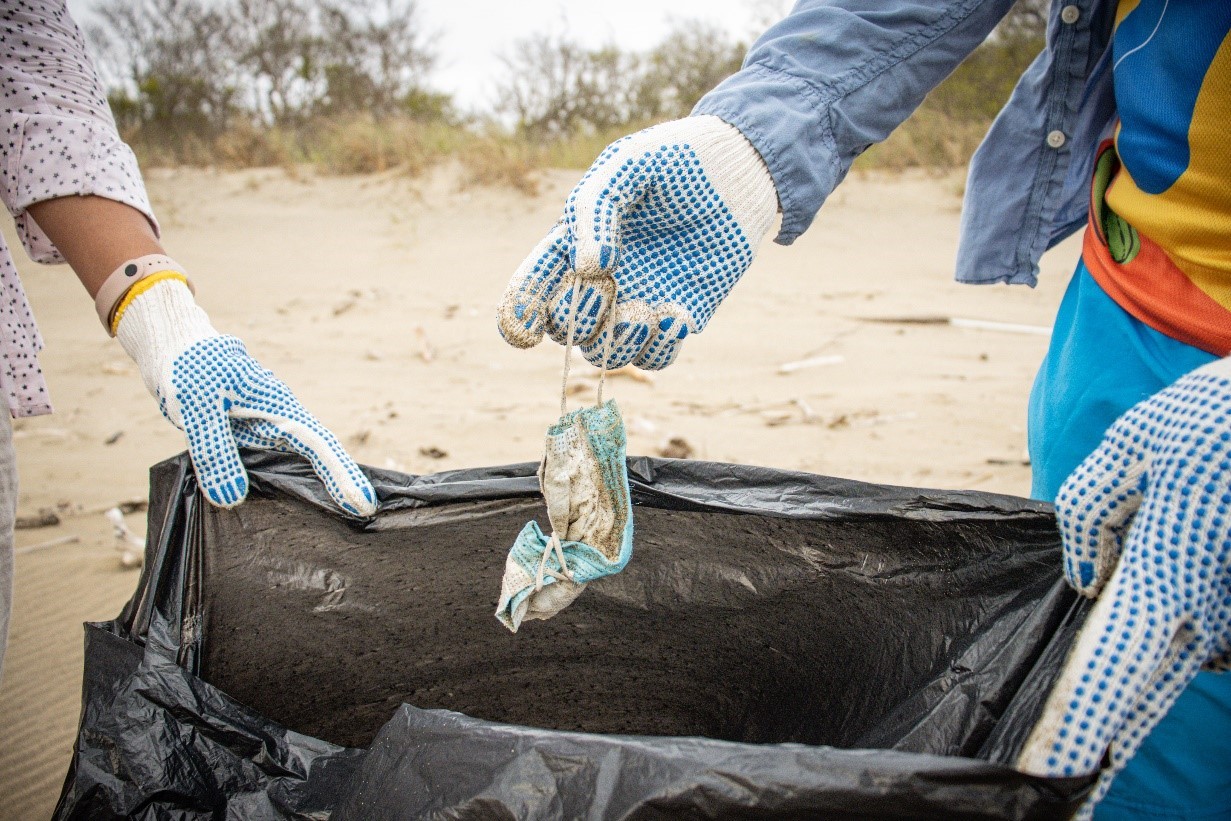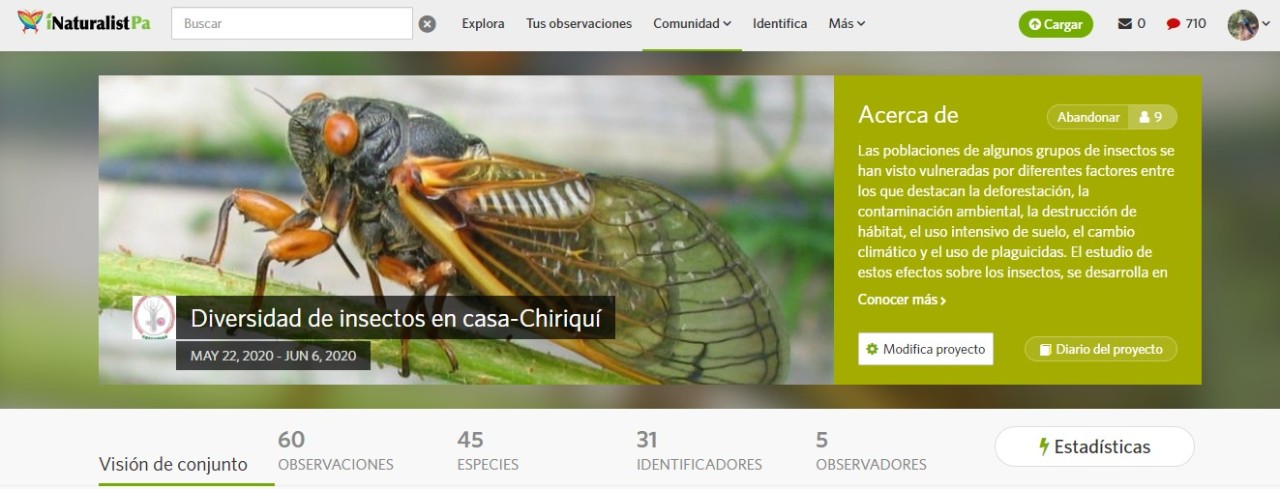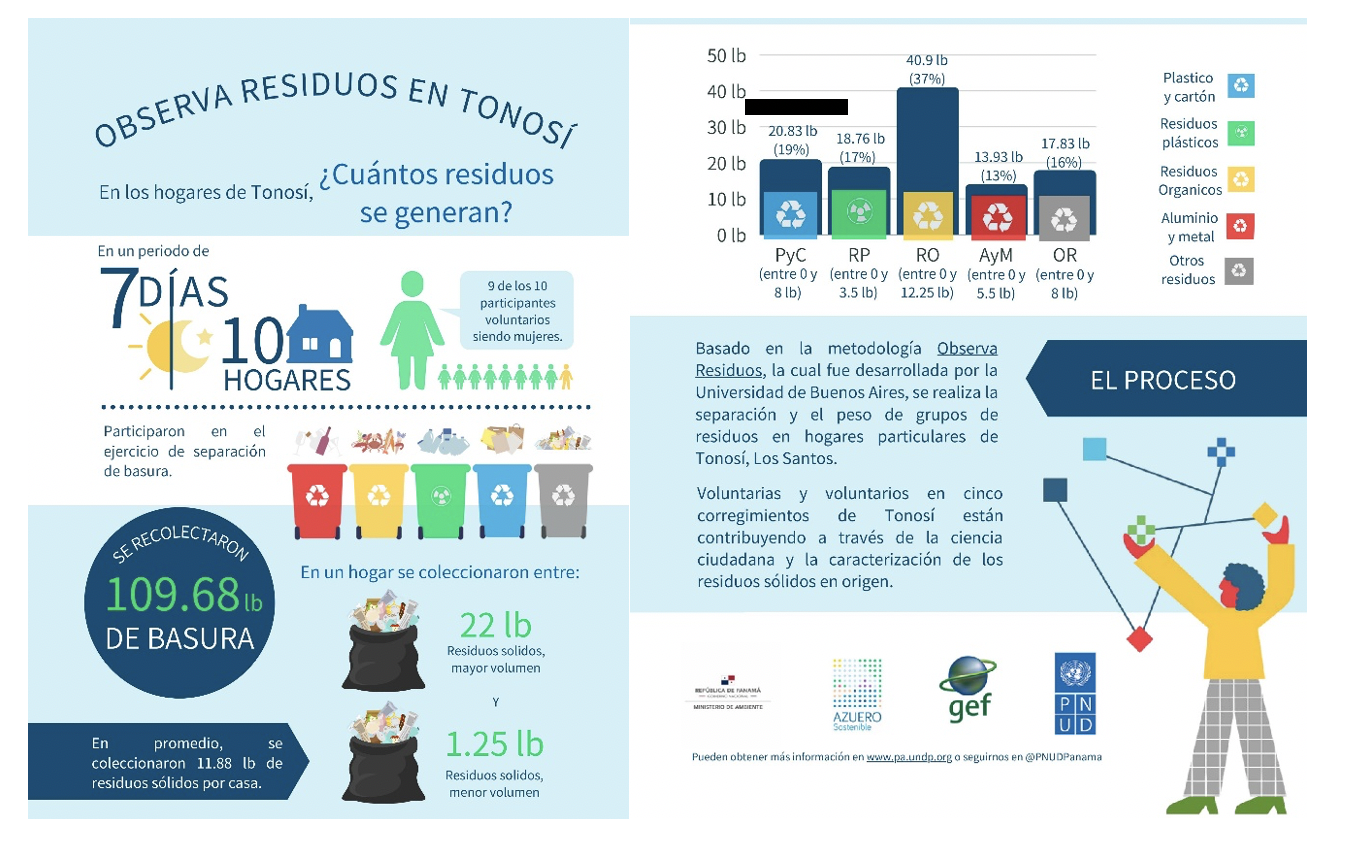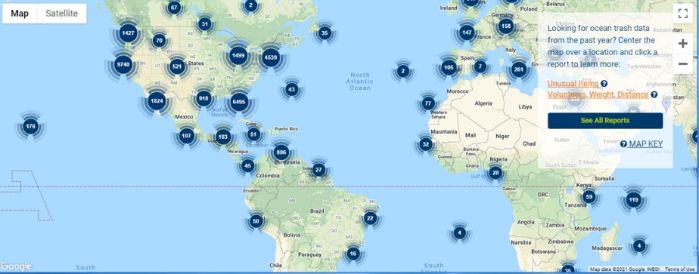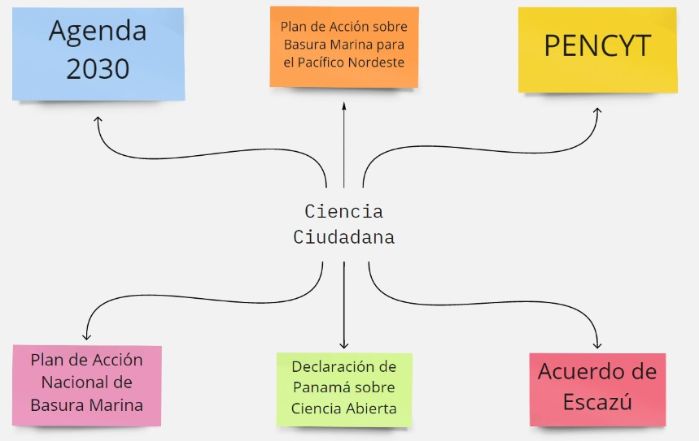Citizen science: Building collective solutions
Citizen science: Building collective solutions
May 7, 2021
Citizen science contributes to the green recover by providing data on solid waste.
In Panama, where scientific resources are scarce and the need for evidence-based policies is large, how can we collectively generate the necessary data that helps us protect our natural resources? The UNDP Accelerator Lab is betting on citizen science.
So just what is citizen science? Just as its name implies, it’s a way for citizens to participate in scientific research – science for the people, by the people. Citizen science aims to generate and share information in formats that laypeople can easily understand. Through citizen science, it's possible to obtain information that might not be available by other means.
Citizen science combines collective action with scientific research to understand and solve environmental problems.
The importance of people sharing and contributing to data monitoring and collection programs for environmental management has been proven. In the United States and Ireland, data on marine debris gathered during the International Coastal Cleanup has informed and inspired the design and implementation of policies to reduce marine. This includes establishing litter prevention laws, banning of polystyrene (better known as foam) and incentivizing the use of reusable bags. Besides eliminating hundreds of kilograms of litter on the coasts, the initiative has provided data that has been used in more than 85 reports, including scientific papers.
Every year, 102,229 tons of Panama’s marine litter can be traced back to litter from the mainland (PNUMA, 2019).
Citizen science enables the scientific community and citizens to come together in a quest for solutions.
Citizen science seeks to involve people in the process of increasing scientific knowledge. Its contribution to academic research has been recognized on a national and international level. Scientific articles that involved the use of citizen science are cited on average four times more than articles that do not involve citizens. The 2021 City Nature Challenge, powered by iNaturalist.org, motivated citizens to document wildlife in their cities. Five hundred and nine citizen scientists joined the challenge this year, thus contributing to a publication about wildlife threats in Panama. The data generated through iNaturalist supports policymakers in making informed decisions about conservation and promote sustainable development.
Several universities participated in training students and staff in the use of iNaturalist.
The UNDP Accelerator Laboratory in Panama is testing new methods of citizen science to create empirical and practical knowledge that can support the design of evidence-based policies in the field of solid waste.
Capturing data on household waste
Citizen science allows for citizen participation in the establishment of an inclusive and participatory municipal solid waste management plan for the district of Tonosí, Los Santos. Based on the methodology Observa Residuos, which was developed by the University of Buenos Aires, Argentina, the household-generated waste is separated and weighed in each home. Volunteers in five townships in Tonosí are contributing through citizen science by separating and documenting their solid waste.
Findings from waste segregation experiment in 10 households.
Tracking the marine debris problem
By listening to southern Azuero’s communities, the Accelerator Lab has learned that environmental education, recycling and beach cleanups are popular community activities for schools, civil society organizations and even businesses. Citizen science in coastal cleanup has been made popular through mobile apps that track marine litter such as the Marine Debris Tracker and Clean Swell. The Accelerator Lab will combine the use of mobile apps with traditional ways of collecting marine debris data to identify the type and source of marine litter on Pacific beaches in Panama.
Open-source maps georeferenced points of cleanups (TIDES, 2021)
Assisted by the Technological University of Panama and citizen scientists of Azuero, the Accelerator Lab is developing a citizen science guide for marine litter and preparing to run workshops on citizen science and marine litter tracking. First findings will be published in September, Panama’s Ocean Month.
Supported by the Ministry of Environment, the data will also be embedded in the the National Environmental Information System (SINIA) and thus will add to the collective database on the country’s solid waste management.
The initiative will impact six national and global plans and policies (UNDP).
There are countless opportunities to participate in citizen science, many of which were mapped by the National Biodiversity Information and Monitoring System. If you are working on a citizen science project right now, we’d love to hear from you. Contact us at the UNDP Accelerator Lab in Panama!
###
Stay tuned for updates and if you have ideas, do not hesitate to contact us at laboratorioaceleration.pa@undp.org
Lea este blog en español aquí

 Locations
Locations